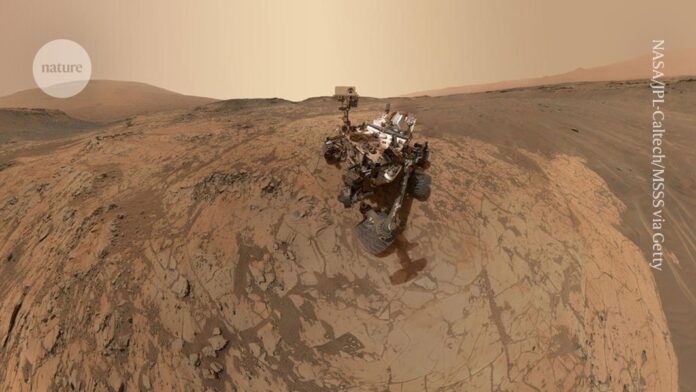Over the past several weeks, hundreds of meeting abstracts have quietly vanished from the websites of research conferences organized by the Lunar and Planetary Institute (LPI) in Houston, Texas — a NASA-funded research institution that maintains key archives and information about US planetary science. The abstracts have a common theme: diversity, equity and inclusion (DEI). These topics were banned from receiving government funding by a 20 January executive order from US President Donald Trump, who called them “illegal and immoral discrimination programs”. The LPI did not seek permission from the abstract authors to remove the material.
NASA embraced diversity. Trump’s DEI purge is hitting space scientists hard
Many researchers are fuming about the deletions from the archives of a research institute that is managed independently from the federal government. “This is just egregious censorship of science,” says Ingrid Daubar, a planetary scientist at Brown University in Providence, Rhode Island, who co-authored several of the deleted abstracts.
Many of the abstracts are pages-long developments of preliminary ideas that are important to the planetary-science literature. Their removals are an “Orwellian rewriting of history”, says a researcher who asked to remain anonymous because of the sensitivity of the situation. Mark Sykes, a senior scientist at the Planetary Science Institute in Tucson, Arizona, called the decision “a profound ethical failure”.
Independent organization
Several scientists told Nature that they think the LPI and its parent organization, the Universities Space Research Association (USRA) in Washington DC, have over-interpreted the Trump executive order as retroactively applying to independently performed work in public archives.
In a statement provided to Nature, the USRA said it “believes that compliance with Administration directives requires DEI content to be out of public view”, unless it is “advised by an authoritative federal body that we can restore that content”.

Have Trump’s anti-DEI orders hit private funders? HHMI halts inclusive science programme
“Waiting for some ‘authoritative federal body’ to tell them to undo the harm they’ve done is just deflecting accountability,” Daubar says. NASA declined to comment on the basis that it does not run the websites.
A group of researchers is now leading a data-rescue effort to locate and rehouse the deleted material on a privately run website.
Many federal agencies, including NASA, have removed DEI-related content from their websites in response to the executive order. But the LPI is not a government institution; it was set up in 1968, during the Apollo era, primarily to foster relationships between university scientists and NASA. For decades, it has organized planetary-science conferences, trained researchers and maintained documents and databases on topics such as lunar impact craters.
The missing meeting abstracts include research on workforce issues, such as how to build the most effective team of scientists for a mission. One of Daubar’s deleted abstracts described a programme to involve early-career scientists in NASA’s InSight mission to Mars. David Trang, a planetary scientist at the Space Science Institute who is based in Honolulu, Hawaii, had his work on improving mental health among planetary scientists deleted. Removing these abstracts “takes away our culture”, he says. “That’s the saddest part.”



